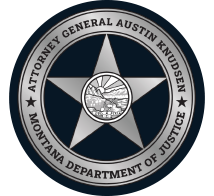Process:
When reviewing the community listening session responses, the Task Force identified four themes that seemed common among Native American communities regardless of whether they were urban Indian areas or reservations:
- Limited law enforcement resources – lack of adequate personnel
- Lack of standardized protocols when a person is reported missing
- Lack of communication:
- Between law enforcement and families
- Between agencies – Tribal law enforcement, BIA, Montana Highway Patrol, Child Protective Services, FBI, police and sheriff departments
- Lack of accountability of system-based agencies
The Task Force discussed feedback and key observations from each listening session to identify additional questions:
- How do jurisdictions work and are they meeting the needs of families?
- Are there areas where significant gaps remain?
- How can agency responses and services to families be improved within and across jurisdictions?
- What resources do communities need?
After discussions and presentations by Montana DOJ staff and experts in the field throughout the year, the Task Force identified four strategies to recommend to the State-Tribal Relations Interim Committee for consideration before the 2021 Legislature.
MMIPTF
Recommendations to the Legislature:
- Establish a Missing Person Response Team Training Grant Program – the grant program will help fund training opportunities for community-based missing persons response teams. Eligible teams may be multi-agency and multi-jurisdictional and include other community entities and volunteers. Eligible teams shall establish memorandums of understanding between the involved entities; develop operational procedures and criteria under which a team activation can occur; and participate in a community action planning effort conducted in accordance with department guidelines. Eligible training expenses include but are not limited to the licensing costs of a training program, facilitator and conference location fees, and travel expenses for training staff and trainees.
- Extend the Missing Indigenous Persons Task Force – the Montana Missing Indigenous Persons Task Force will be extended to June 30, 2033.
- Establish a funding mechanism for task force activities – The Task Force seeks to adopt language in its guiding legislation (MCA
44-2-411), similar to House Bill 18 (2023), specifically, “money transferred from any lawful source, including but not limited to gifts, grants, donations, securities, and other assets, public or private, may be deposited in the account.”
MMIP Reports
Click here to read the Missing Indigenous Persons Review Report to the Legislative Interim Committees – 2024.
Click here to read the Looping in Native Communities Report to the State-Tribal Relations Interim Committee – 2022.
Click here to read the Missing Indigenous Persons Review Report to the Legislative Interim Committees – 2022.
Click here to read the Looping in Native Communities Report to the State-Tribal Relations Interim Committee – 2020.
